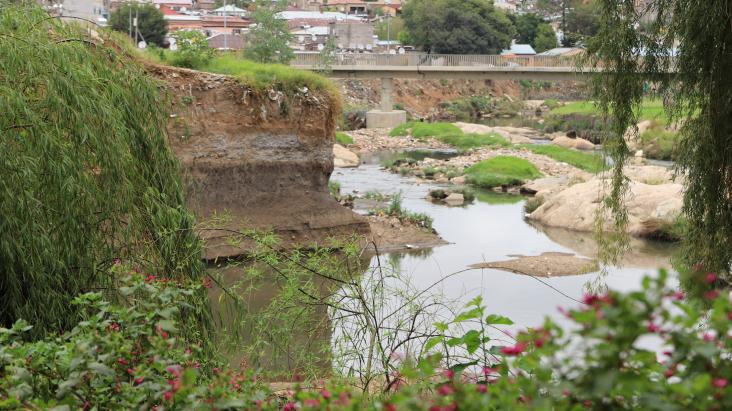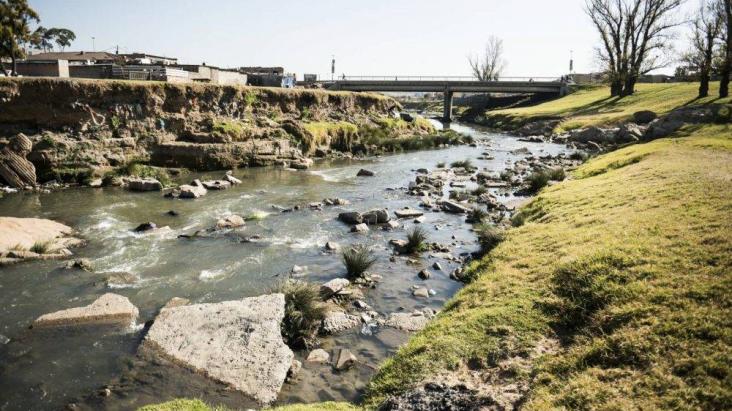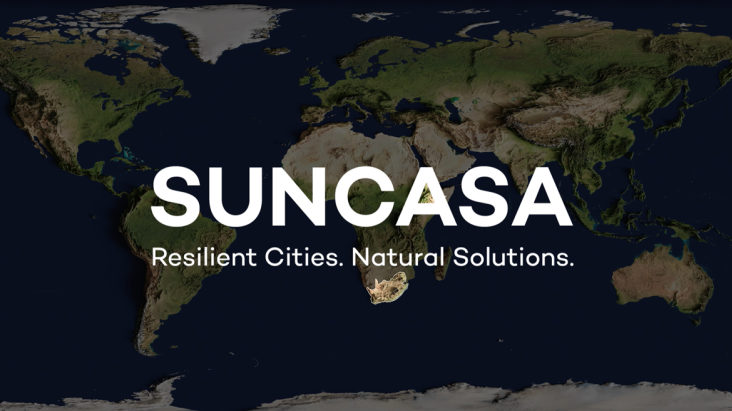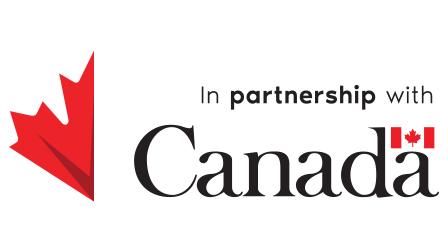SUNCASA
Mise à l’échelle de solutions fondées sur la nature (SfN) en milieu urbain pour l’adaptation aux changements climatiques en Afrique subsaharienne (SUNCASA) est un projet d’une durée de trois ans visant à améliorer la résilience, l’égalité des genres, l’inclusion sociale et la protection de la biodiversité dans des communautés urbaines en Éthiopie, au Rwanda et en Afrique du Sud.
SUNCASA bénéficiera à 2,2 millions de personnes vivant dans des zones à haut risque d’inondation à Dire Dawa (Éthiopie), Kigali (Rwanda) et Johannesbourg (Afrique du Sud). Financé par Affaires Mondiales Canada par le biais du programme Partenariats pour le climat et mis en oeuvre par l’IISD et l’Institut des ressources mondiales, SUNCASA sera mis en œuvre en partenariat avec un large éventail d’organisations locales.
Les SfN du projet, qui tiennent compte des questions de genre, comprennent la restauration et la conservation des bassins fluviaux en amont, à travers l’agroforesterie, le boisement et le reboisement, la création de zones tampons et la plantation d’arbres en milieu urbain.
Sites du Projet

Dire Dawa
SUNCASA procédera à la restauration du bassin du fleuve Dechatu à Dire Dawa (Éthiopie), permettant ainsi une réduction des risques d’inondation, de l’érosion et du stress hydrique en milieu urbain, au bénéfice de plus de 200 000 personnes.

Kigali
À Kigali (Rwanda), SUNCASA restaurera des micro-bassins versants dans le bassin hydrographique Inférieur du fleuve Nyabarongo afin d’atténuer les risques d’inondation, les glissements de terrain et l’érosion des sols, ameliorant ainsi que la resilience de 975 000 personnes.

Johannesbourg
Le projet SUNCASA à Johannesbourg (Afrique du Sud) procédera à la restauration du bassin versant du fleuve Jukskei au moyen de l’élimination des espèces exotiques envahissantes et des initiatives de plantation d’arbres, ce qui permettra de réduire les inondations et d’améliorer la sécurité de l’eau pour 1,045 million de personnes.
En savoir plus

Faire face aux inondations soudaines, la forte chaleur urbaine et d’autres menaces liés aux changements climatiques dans trois villes d’Afrique subsaharienne
A new project will use solutions found in nature to improve the resilience of 2.2 million people in Dire Dawa (Ethiopia), Kigali (Rwanda), and Johannesburg (South Africa).

The New Times | Becoming a city in the forest: Catalyzing Kigali’s climate resilience through nature
By 2026, SUNCASA aims to enhance the resilience of 975,000 Kigali residents while promoting gender equality, social inclusion, and biodiversity protection.

WRI | Three Takeaways on Green Infrastructures and Nature-Based Solutions for Urban Resilience
IISD and ICUN recently highlighted SUNCASA in the fifth installment of the NAbSA Dialogue Series. This series takes an in-depth look at NbS and climate adaptation, covering topics such as how to incorporate gender equality into NbS, the importance of biodiversity and ecosystem evaluation.

Alex News | Canada’s foreign affairs minister visits Jukskei River in Alex
Canada’s minister of foreign affairs, Mélanie Joly, visited the Jukskei River on August 22 to view the progress of its government-funded work being done by the Alexandra Water Warriors. The project is significant as it aligns with the city’s water security strategy, which aims to create resilient, liveable, and sustainable urban water environments, and foster a water-conscious society.

Mail & Guardian | Alexandra Water Warriors are reviving Joburg’s Jukskei River
As one of the city’s largest rivers, the Jukskei’s roughly 50km course inexorably marks it as a casualty of Johannesburg’s rapid urbanisation. Its deeply eroded waterways have long been a repository of the city’s sewage, stormwater, litter, industrial waste and building rubble. But through the work of the community-based Alexandra Water Warriors, the healing and restoration of the blighted river is under way. (Photo: Delwyn Verasamy| M&G)

Video: SUNCASA | Resilient Cities. Natural Solutions.
The SUNCASA project is a 3-year initiative aiming to revitalize critical watersheds in Dire Dawa (Ethiopia), Kigali (Rwanda), and Johannesburg (South Africa), by implement gender-responsive nature-based solutions (NbS) such as agroforestry, afforestation and reforestation, buffer zone creation, alien invasive species removal, and urban tree planting.






